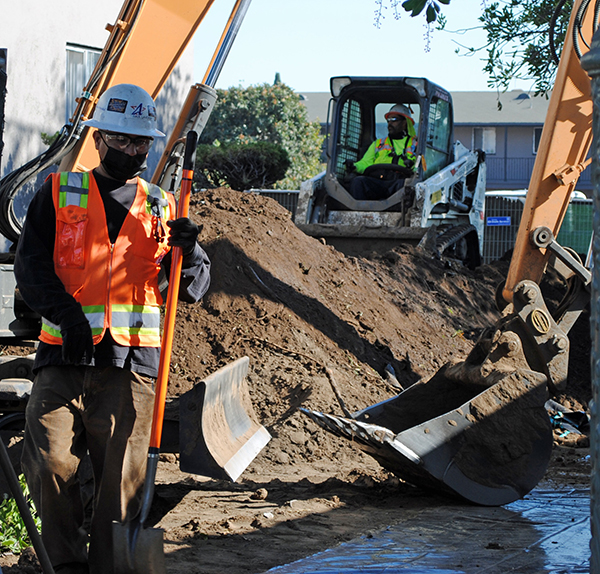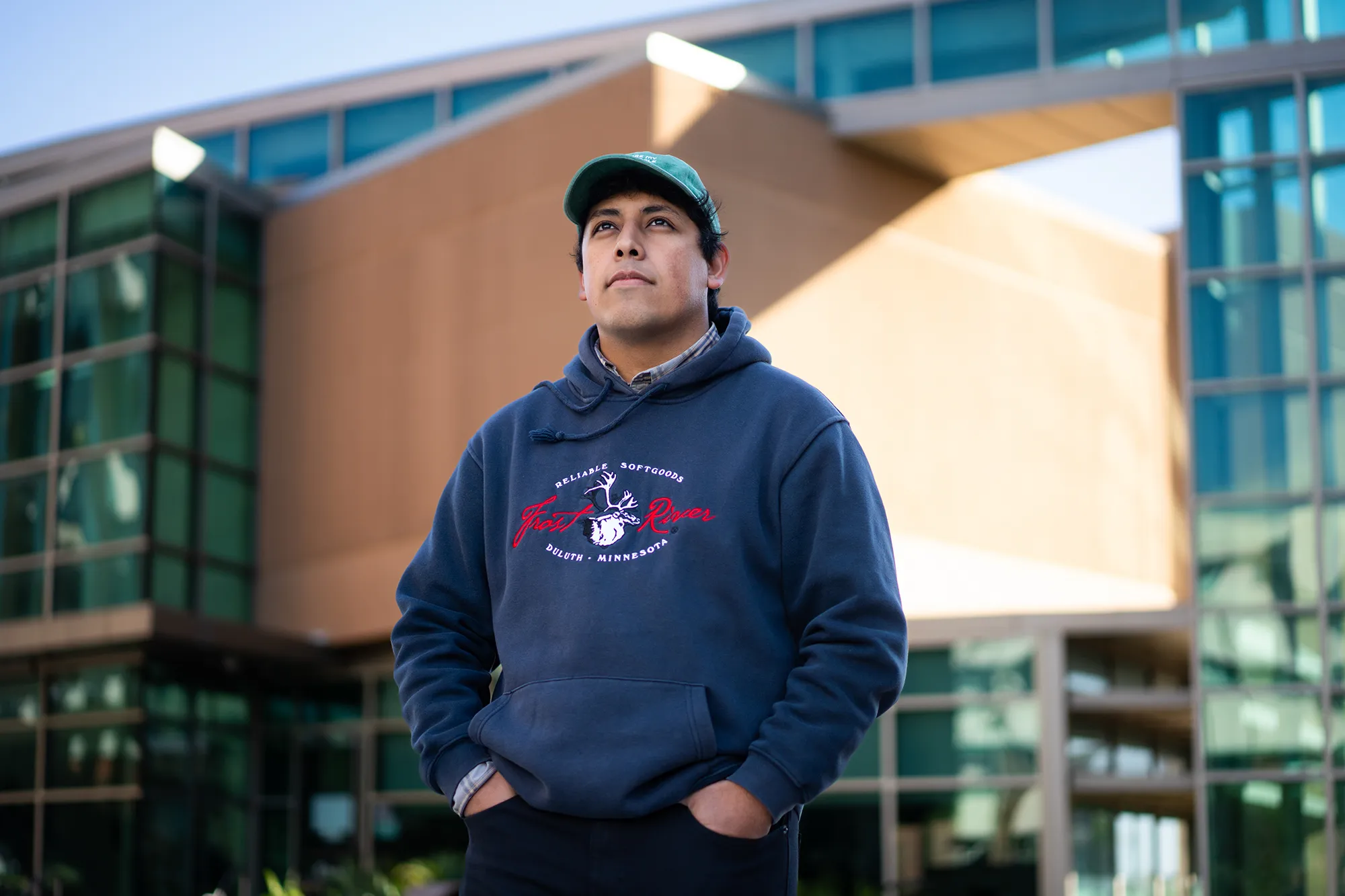By Alfredo Santana
Contributing Writer
VERNON — Fears of cleanup crew layoffs surfaced at the second Exide Technologies Advisory Group meeting as the state vets a new company hired to continue with residential cleanups near the former battery plant.
At the second 2022 meeting held by the state Department of Toxic Substances Control to update residents and community stakeholders on soil cleanings it was also confirmed that former Deputy Director Grant Cope, who played a key role hiring contractors and supervising cleanup efforts, left the agency to work for the Environmental Protection Agency in Washington, D.C.
Another issue voiced at the meeting was how to prevent workers from being mistreated by environmental contractors.
Mark Lopez, the advisory group co-chair, raised the specter of new dismissals unless the agency and community members push for new labor contracts with clauses that give workers more rights, in light of Cope’s departure.
Cope, a lawyer with a background in environmental issues, pressed National Environmental Group Inc., the current environmental contractor, to amend contracts to warn crews of impending layoffs 15 days before so they can start searching for new employers and even apply for unemployment benefits during the transition.
“Over the last few weeks, we had to go over issues we had explained,” Lopez said. “[Cope’s] state job was important” for residents and cleanup workers, most of whom live in or near the impacted neighborhoods by Exide’s toxic releases.
Lopez, an organizer and special projects coordinator with the nonprofit East Yard Communities for Environmental Justice, announced a partnership with a group of supporters from USC to set up a website and gather data from residents with properties within a five-mile radius of the Exide plant that may be heavily contaminated with lead.
He said Exide’s reckless airborne releases hit communities farther away from the current 1.7-mile radius drawn by toxic control officials as the target area to conduct soil testing, removal and replacement in parcels gauged to have dangerous levels of lead and arsenic.
Department of Toxic Substances Control Director Meredith Williams asked residents to stay calm and be patient during the transition to find a replacement for Cope.
“That job is important for community participation, and to address the injustices that occurred,” said Williams, also the other advisory group’s co-chair.
Mehdi Bettahar, Department of Toxic Substances Control assistant deputy director, said the new properties cleaning contract of $48.8 million will cover soil removal and replacement through July 2023, but refused to release the new contractor’s name until the process is vetted.
With an allocation of $322.4 million in the current state budget, the department forecast to complete cleanups at 5,940 properties by March 31, 2025.
Bettahar warned impacted residents to stay alert of scams from individuals and groups posing as contractors or claiming to be state employees asking for money to prioritize their cleanups.
“I want to emphasize that all our cleanup services are provided free of cost.” he said. “No one from the state will ever ask residents to pay to receive this service or to be moved higher on a priority list.”
Although a rise in COVID-19 cases threatens to slow current cleanup efforts in Commerce, Bettahar said crews with about 70 to 75 workers attend full time, and encouraged residents to contact the agency if their properties are skipped from soil testing or are not cleaned when crews are present.
“About 48% of the workers are on site,” Bettahar said. “Some are on vacation, and some are sick. This is a case of lower crew numbers. The cleanup work is tough.
Data collected on April 22 indicates that 3,617 properties had been detoxified, including all parks, schools and day care centers within the perimeter that includes blue-collar communities of Boyle Heights, East Los Angeles, Commerce, Maywood, Bell and Huntington Park.
The department has secured 1,525 new access agreements to pickup soil samples.
Rania Sabty, an assistant professor of Environmental and Occupational Health at Cal State Northridge, confirmed that workers are falling sick to COVID-19 due to the highly contagious Omicron BA.2.12.1 subvariant, and requested patience from residents with dirty outdoor yards.
“We have a COVID-19 problem. Things have changed,” Sabty said.
Chris Hannan, AFL-CIO representative for the Building and Construction Trades Council in Los Angeles and Orange counties, said cleanup crews working in the Exide Technologies project have a decent contract, earn a good salary and provide health and retirement benefits.
“We are growing,” Hannan said. “We have a lot of work in construction, and your benefits will continue after the cleanup jobs are complete. You are poised to have good contracts with good benefits.”
Cleanup employee Juan Flores said his experience with American Integrated Services, a company that conducted remediation and demolition work at the Exide recycling plant, thanked the Department of Toxic Substances Control for its commitment to create local jobs by training and hiring area residents.
“I represent many people in the program,” Flores said. “We are thankful to have these jobs and a career. Before I didn’t have money, and now I have a home and live with my family. It’s great to work for my community, and get paid. AIS is a professional company and is committed to the community. They are there for us.”
On the Exide facility cleanup front, EPA Project Manager Amanda Cruz reported that deconstruction of segment 3 has finished, crews have repaved the surface with asphalt, and work has transitioned to the Department of Toxic Substances Control for soil and underground water testing and detoxification.
Weekly updates issued on the agency’s website have stopped, Cruz said.
And Robert Puga, the Vernon Environmental Response Trust trustee, said more than 1,500 tons of rubbish from segments 2 and 3 were disposed and 1,700 tons were tagged for recycling following dismembering of the battery crushing units.
He said 1,279 tons of metals are set for recycling, and 450 tons of mud and scaling were cast out.
The VERT will remain operational to pay property taxes, give maintenance to the facility and process permits for indoor and outdoor air monitoring units to remain stationed onsite in case more buildings may be demolished.
Nonetheless, Lopez insisted that unions did little to stop managers from intimidating and harassing school trained crews, and vowed to bring the issue to the forefront with the new Department of Toxic Substances Control deputy director.
“There were problems. We hope we’ll to discuss this issue so it won’t happen again,” Lopez said.












